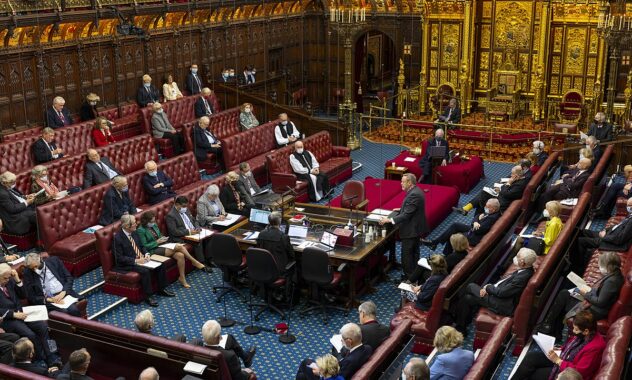The Lords debates the Minimum Service Levels Code of Practice
Government's controversial legislation avoids serious damage

The Government has avoided damaging defeats on it’s controversial Minimum Service Levels legislation in the House of, although an amendment proposed by Labour’s Lord Collins, expressing regret, is passed by a narrow majority.
The House of Lords once again discussed the detail of the Strikes (Minimum Service Levels) Act on Wednesday, with the Government’s Code of Practice on reasonable steps to be taken by a trade union being debated, and a number of amendments (effectively statements of ‘regret’) being tabled by the Lords Labour front bench.
On Wednesday too, a so-called Fatal Motion was placed by Baroness Natalie Bennett, which would have refused to pass the Code of Practice and the three sets of Regulation if it had obtained the support of the House. In the event, the Labour leadership in the Lords placed a whip on their members to abstain, and Baroness Bennett’s Fatal Motion was withdrawn. A number of Labour Peers signalled their support for a fatal motion, blocking the legislation althogether, in their speeches.
It was left to a series of motions of regret to express the dissatisfaction of the Opposition. An amendment of ‘regret’ has no legal effect or power to amend or block the legislation, but is a record of opposition to the legislation or elements of the legislation:
Lord Collins of Highbury moved, as an amendment to the motion to approve the Code of Practice, at end to insert “but that this House regrets that the draft Code of Practice imposes significant new duties on trade unions, beyond the scope of the Strikes (Minimum Service Levels) Act 2023; could exacerbate conflict in the workplace; and despite its intention to provide additional clarification to unions, still contains significant areas of uncertainty.”
That amendment passed 196 to 192 (Government defeat)
Three further votes on amendments on the respective pieces of legislation, placed by Labour Peers were defeated in turn (Government win):
Baroness Merron moved, as an amendment to the original motion to approve the Regulations, at end to insert “but that this House regrets that the draft Regulations contain policy detail that was not included in primary legislation, contrary to the recommendation of the Delegated Powers and Regulatory Reform Committee; do not reflect the policy positions taken by the Government in their response to the relevant consultation; and go against evidence received by the Government which suggests that their implementation will be challenging.”
Contents: 170 Not contents: 187
Lord Coaker moved, as an amendment to the original motion to approve the Regulations, at end to insert “but that this House regrets that the draft Regulations contain policy detail that was not included in primary legislation, contrary to the recommendation of the Delegated Powers and Regulatory Reform Committee; and considers, given that the impact assessment acknowledges that some workers’ right to take industrial action will be affected or denied, that they are too prohibitive.”
Contents: 151 Not contents: 167
Lord Liddle moved, as an amendment to the original motion to approve the Regulations, at end to insert “but that this House regrets that the draft Regulations contain policy detail that was not included in primary legislation, contrary to the recommendation of the Delegated Powers and Regulatory Reform Committee; that their retrospective element will create uncertainty; that the impact assessment is not sufficiently robust; that it is unclear whether contractual relationships will impact the issue of work notices; and that they may prevent workers from being able to take industrial action.”
Contents: 116 Not contents: 144







